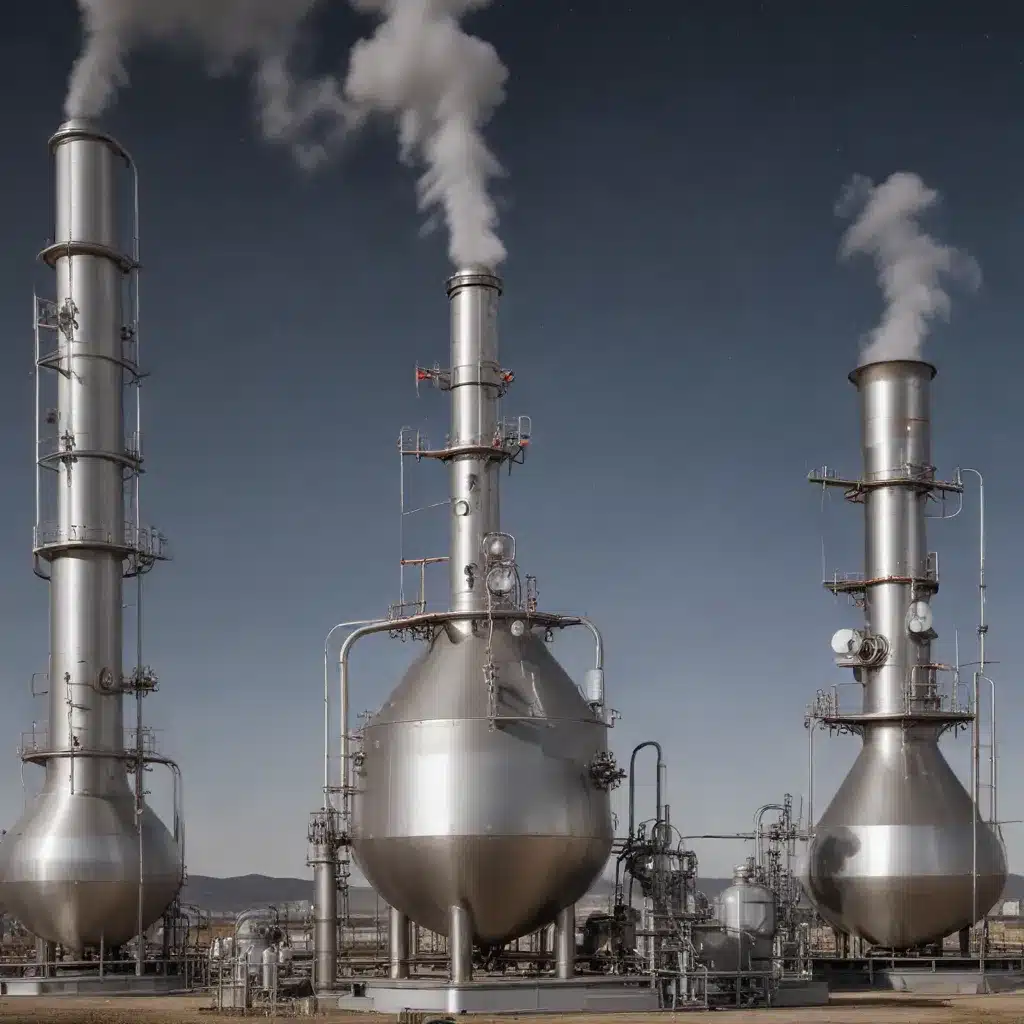
Predicting Methanol Space-Time Yield from CO2 Hydrogenation using Machine Learning Techniques
As the European Union accelerates its shift towards a carbon-neutral future, innovative solutions for CO2 utilization have become increasingly vital. One promising approach is the catalytic hydrogenation of CO2 to produce methanol, a versatile clean energy carrier. However, optimizing the complex reaction kinetics and catalyst design remains a significant challenge. In this article, we explore how machine learning techniques can help predict and enhance the methanol space-time yield (STY) from CO2 hydrogenation processes, driving the European energy transition towards a more sustainable chemical industry.
Carbon Dioxide Hydrogenation
The catalytic hydrogenation of CO2 to methanol has garnered substantial attention as a viable pathway to convert greenhouse gas emissions into valuable liquid fuels and chemical feedstocks. This process offers a unique opportunity to close the carbon loop, mitigating environmental impact while producing essential industrial commodities.
Methanol Production Process
The production of methanol from CO2 hydrogenation typically involves a series of steps: CO2 capture, hydrogen generation, and the catalytic conversion of the reactants into methanol. The efficiency and productivity of this process are heavily dependent on the performance of the heterogeneous catalysts employed, which can significantly influence the methanol space-time yield (STY) – a critical metric for process optimization.
Catalyst Design and Development
Extensive research has focused on developing advanced Cu-based catalysts that can enhance the selectivity, activity, and stability of the CO2 hydrogenation reaction. Factors such as the metal-support interactions, nanostructure, and dopant elements have been shown to play crucial roles in tailoring the catalytic properties.
Reaction Kinetics and Thermodynamics
The hydrogenation of CO2 to methanol is a complex, multi-step reaction governed by intricate kinetic and thermodynamic considerations. Understanding the influence of reaction parameters, such as temperature, pressure, gas hourly space velocity (GHSV), and feed composition, on the methanol STY is essential for process optimization.
Machine Learning Applications
Given the inherent complexity of the CO2 hydrogenation process, machine learning techniques have emerged as powerful tools to unravel the relationships between the various process variables and the resulting methanol STY. These data-driven models can unlock valuable insights and facilitate the design of more efficient catalytic systems.
Predictive Modeling Techniques
In this study, we evaluated the performance of three prominent penalized regression models – Ridge Regression, Lasso Regression, and Elastic Net Regression – in predicting methanol STY from a comprehensive dataset derived from Cu-based catalyst research. These techniques possess the ability to handle multicollinearity and feature selection effectively, making them well-suited for this application.
Feature Engineering and Selection
The preprocessing of the dataset involved crucial steps, such as data cleaning, imputation, outlier removal, and normalization, to ensure the reliability and robustness of the predictive models. Furthermore, the feature importance analysis revealed that GHSV and molar masses of the support are key parameters influencing the catalytic activity and methanol production.
Model Evaluation and Optimization
The models were rigorously evaluated through 10-fold cross-validation and tested on unseen data to assess their generalization capabilities. The Ridge Regression model outperformed the other techniques, achieving the lowest Root Mean Squared Error (RMSE), Mean Absolute Error (MAE), and Mean Squared Error (MSE), demonstrating its superior predictive accuracy for methanol STY.
Process Optimization
The insights gained from the machine learning models can be leveraged to drive the optimization of the CO2 hydrogenation process, ultimately enhancing the overall productivity and sustainability of methanol production.
Reaction Conditions Optimization
By accurately predicting the methanol STY, the machine learning models can guide the fine-tuning of reaction parameters, such as temperature, pressure, and GHSV, to achieve the desired yield and productivity targets. This data-driven approach can help expedite the process development and scale-up efforts.
Yield and Productivity Maximization
The feature importance analysis can provide valuable guidance in catalyst design and development, highlighting the critical parameters that need to be addressed to maximize the methanol STY. This knowledge can inform the optimization of metal-support interactions, nanostructure engineering, and dopant selection to unlock the full potential of the catalytic system.
Data-Driven Insights
The integration of machine learning techniques into the CO2 hydrogenation workflow not only enhances the predictive capabilities but also generates valuable data-driven insights that can drive the continuous improvement of the process.
Process Monitoring and Control
The trained machine learning models can be deployed as real-time monitoring and control systems, enabling the prediction of methanol STY and the early detection of potential process deviations. This data-driven approach can help maintain optimal operating conditions, ensure consistent product quality, and minimize energy consumption.
Exploratory Data Analysis
The comprehensive preprocessing and analysis of the dataset have revealed crucial relationships between the process variables and the methanol STY. These insights can guide further experimental design, catalyst development, and techno-economic assessments to accelerate the commercialization of CO2 hydrogenation technologies within the European chemical industry.
Challenges and Limitations
While the application of machine learning techniques has demonstrated promising results in predicting methanol STY, there are still challenges and limitations that need to be addressed to fully harness the potential of this approach.
Catalyst Deactivation and Stability
One of the key challenges in the CO2 hydrogenation process is the long-term stability and durability of the catalysts. Machine learning models can be further enhanced to predict and mitigate catalyst deactivation, ensuring reliable and sustainable methanol production.
Techno-Economic Considerations
The successful deployment of CO2 hydrogenation technologies requires a thorough understanding of the techno-economic feasibility. Machine learning models can be integrated with life cycle assessments and economic optimization frameworks to provide a holistic evaluation of the process and guide investment decisions.
The integration of machine learning techniques into the CO2 hydrogenation process has demonstrated significant potential in predicting and optimizing methanol STY. By leveraging these data-driven insights, the European chemical industry can accelerate the transition towards a more sustainable and efficient methanol economy, contributing to the continent’s broader decarbonization goals. As the European Future Energy Forum continues to explore innovative solutions for renewable energy and carbon utilization, the findings presented in this article offer valuable insights for researchers, policymakers, and industry stakeholders alike.






